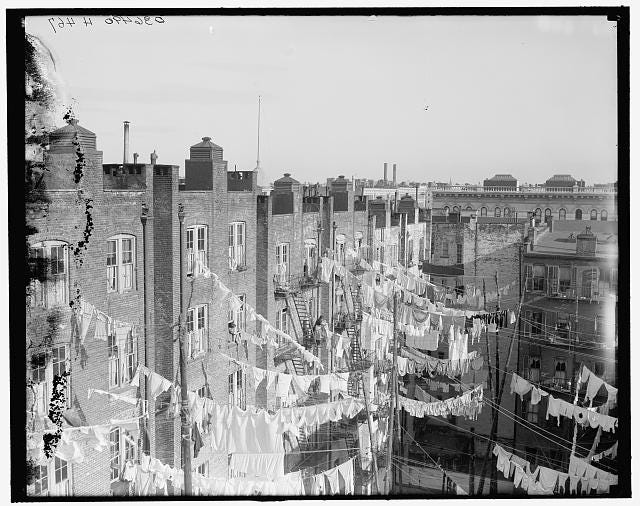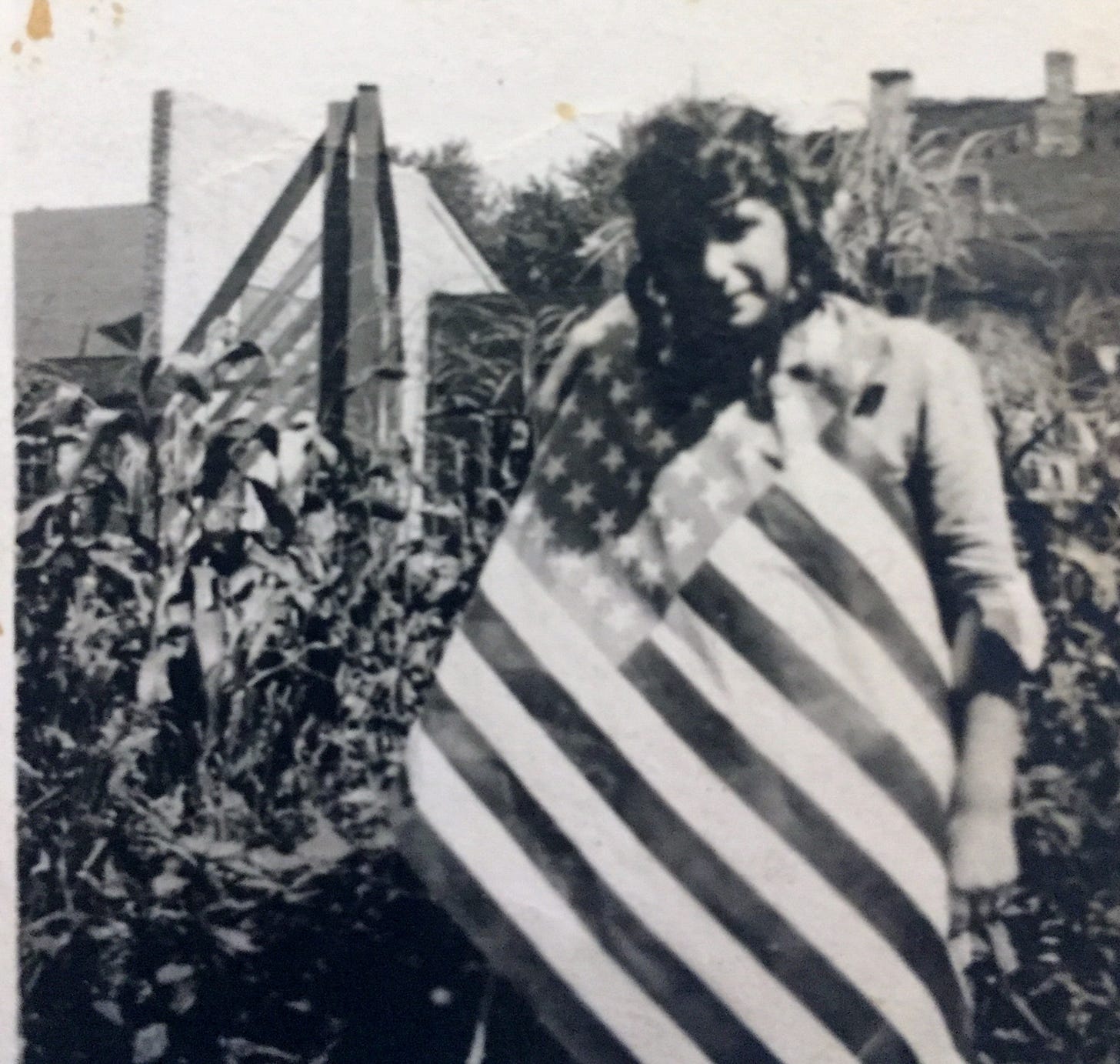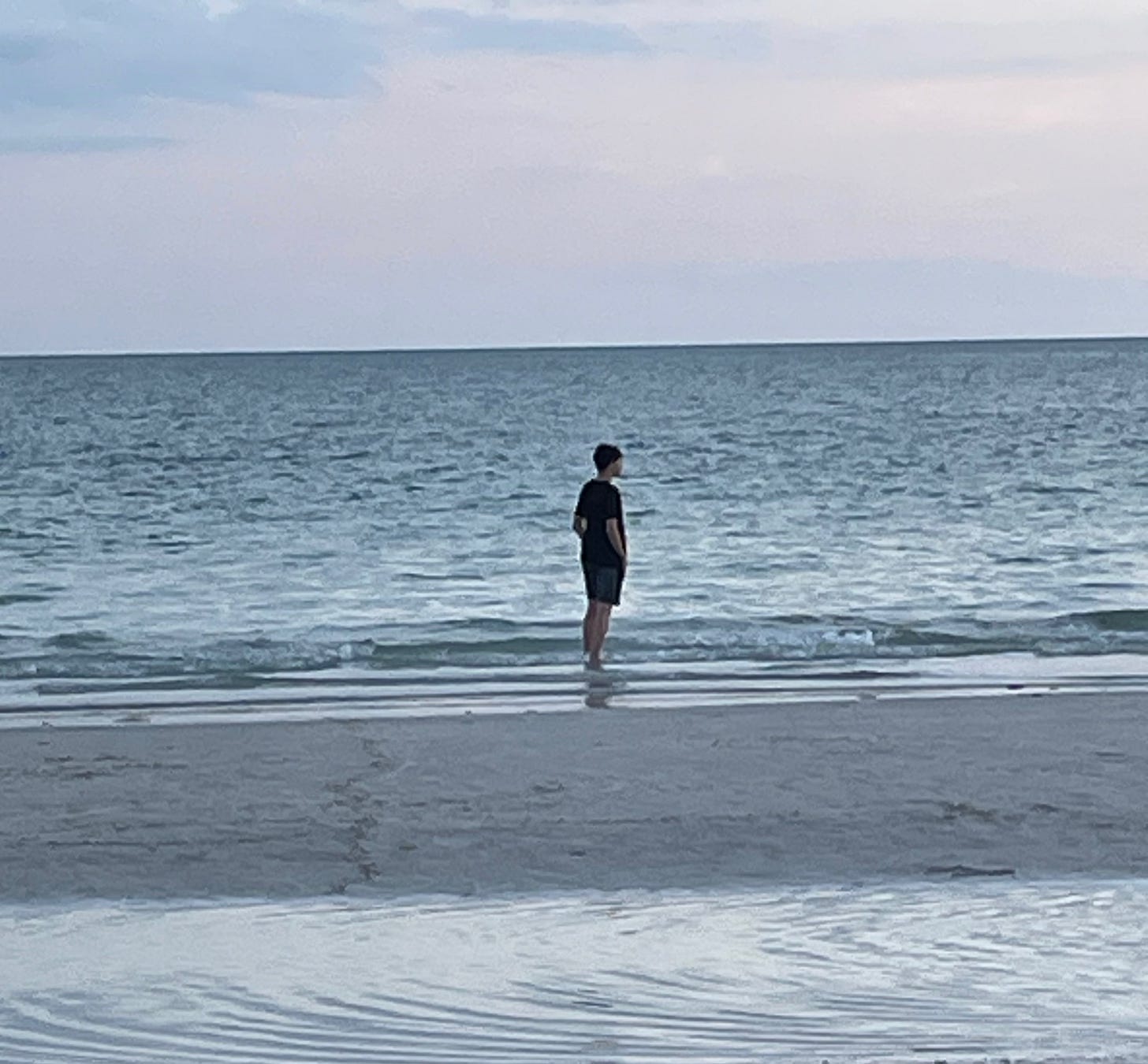The Statue of Liberty greeted the tired, the poor, those yearning to be free, and the “wretched refuse” of Eastern Europe who poured into the Port of New York at the turn of the last century. The next stop for many of them, including some members of my own family, were the tenements of the Lower East Side in Manhattan.
Recently, I had an opportunity to visit the Tenement Museum in New York City. The experience gave me a new lens through which to view what my grandparents and great-grandparents passed on to me as a result of their immigrant experience.
My Jewish grandparents were maddeningly tight-lipped about their immigrant stories. They had no nostalgia for the good old days in the Pale of Settlement, a sprawling, mostly rural zone in Eastern Europe where Jewish people had been forced to live for many decades. Maybe the lack of nostalgia came from the reality that there weren’t many good old days to be had there. Millions, including my family members, had been forced in the late 1800’s and early 1900’s to flee their homes by the twin furies of persecution and poverty.
When they arrived in America, they still faced crushing financial hardship, but at least no one was trying to kill them. That created opportunity to work toward a better life. Some of my relatives began their lives in America crammed into tiny three-room, 325 square foot tenement apartments that housed as many as ten people. History.com notes that there were more than 80,000 tenement buildings in New York City by 1900, housing 2.3 million people. This was fully two-thirds of the total population of the city at the time.
When I was a child, my relatives’ silence about their tenement experience led the curious history-hunter in me to fill in the blanks using the template I found in some of my favorite books, All of a Kind Family and More All of a Kind Family, written by Sydney Taylor. These books painted a warm-hearted picture of tenement life that was full of pushcarts, peddlers, and pickles. As I got older, I caught a glimpse into what a tenement might have looked like every time I watched old episodes of the 1950’s sitcom, The Honeymooners. The aging, spare Brooklyn apartment in which characters Ralph and Alice Kramden lived didn’t seem all that far removed from the kind of places my family might have landed a few decades earlier. In adulthood, historical facts and images about the dangerous living conditions, disease, crime, and privation in tenements a hundred years ago gave me valuable context for those works of fiction.
I grew up in a comfortable Chicago suburb that was far closer to the world my ancestors might have dreamed of when they left Ukraine, Belarus, Lithuania, and Poland than the hardscrabble world they discovered when they first came to America. And through my own interest in exploring the meaning of family stories, I sought to honor the hard work and sacrifice my forebears made as they built their lives in this country.
Visiting the Tenement Museum was for me like visiting both landing strip and launch pad for their lives. It represented for me the place in which they stopped looking over their shoulders for pursuers and began to look forward to the future, perhaps for the first time.
In their journey to America, there were echoes of another story embedded deep within my family tree. The Bible describes the very first time in history the Hebrew people faced suffering, persecution, and potential holocaust in Egypt at the hands of a megalomaniac ruler. In just nine short verses, Exodus 2 contains the account of a mother desperate to save her baby son from certain death. She places the little one in a pitch-waterproofed basket and sends him down the Nile River, praying in the face of impossible odds that he would be rescued. The name his rescuer gave him, Moses, reflected her first encounter with him. His name meant “drawn out” of the water.
My grandparents got on the freighters that would carry them across the ocean to America, not realizing that they themselves were a kind of a boat, carrying to safety in their bodies the seed of future generations. While they weren’t Moses, they were compelled to act by the same impulse Moses’s birthmother was.
In recent years, I’ve come to better understand the trauma I inherited from their experiences as well as the accumulated the trauma of the generations that came before them. But my visit to the Tenement Museum revealed in a deeper way to me the shape of the gifts I’ve received from them including resilience and a fierce work ethic that allowed them to build new lives in a new land. . , while offering me a solemn opportunity to stand on holy ground to honor their hope and courage.
If you’re pondering your own family history, my book Translating Your Past: Finding Meaning in Family Ancestry, Genetic Clues, and Generational Trauma is a companion that will help you consider the many threads of the story you’ve inherited through a lens of thoughtful faith. I’m giving away a copy of this book to the first two people who click the button below and send me your name and U.S. mailing address. (Of course, you can also buy a copy from your favorite bookseller.)
Fill in the blanks
What I’ve been reading: _______
My answer: The Gift of the Outsider: What Living in the Margins Teaches Us About Faith by Alicia Akins, Losing Our Religion: An Altar Call for Evangelical America by Russell Moore, The Place We Make: Breaking the Legacy of Legalized Hate by Sarah Sanderson, and The Difficult Words of Jesus: A Beginner’s Guide to His Most Perplexing Teachings by Amy-Jill Levine. My husband and I will be leading a small group through the latter title this fall.
What I’ve been writing :________
My answer: Working on a book proposal and some freelance work for a Bible-teaching ministry.
What I loved most about this summer: _______
My answer: Watching my youngest grandson fall in love with the ocean.
What I’m looking forward to this fall: _______
My answer: For this first time since 2018, my husband and I will be returning to Israel. This will be my eighth visit and Bill’s ninth. Longtime friends will be joining us for this trip, so we’ll have an opportunity to see the Land through their eyes, and explore the place that for me feels the most like home of anywhere I’ve ever been on earth.
What I’m most grateful for: _______
My answer: As a person who lives with a complicated rare immune deficiency, I’ve been ill too much in my life to ever take a span of good health for granted. 2023 so far has been such a span. It is both gift and respite, and I receive it as such.
I’d love to hear from you. How would you fill in the blanks above? .
Click here to learn more about my books, the other things I’ve written, plus podcasts on which I’ve been a guest.
Click here if you’re in search of a speaker for an event or retreat at your church.
Click here to read a collaborative newsletter called The Sage Forum that’s designed to equip, encourage, and empower women over 40 to mature in faith and grow in wisdom. Proud to be on this team of writers and thinkers!
May the God of peace…of shalom…be with you.









I would love to explore that museum someday! Perhaps the next time we pass through that area, I'll be able to make it happen. We will be living on the road soon, and our first leg will be a 6-8 month lap around the U.S., so it is a possibility.
In answer to your questions:
What I've been reading: Vagabonding, by Rolf Potts
What I've been writing: still working on a mostly fictional novel based on the life of my grandmother, who likewise, refused to tell us much about her life. I found a shoebox full of clues after she died and am writing "her story" based on the bits and pieces she left behind.
What I loved most about this summer: My husband and I traveled to Zambia to meet my brother-in-law's extended family there. What an amazing experience!
What I'm looking forward to this fall: We have sold most everything and are finishing up our travel vehicle build now, so we should move into our new life as nomads sometime this fall.
What I'm most grateful for: My husband and I, after quite a few unfortunate years of apathy toward one another, are now closer than ever. It's amazing. Miraculous, really.
What a moving post, Michelle. Thank you for sharing your family history! Always a gift.